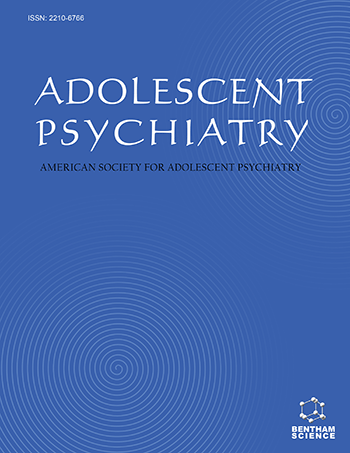Abstract
Background: Somatic symptoms are common in trauma survivors, including those who have experienced sexual abuse. These symptoms sometimes continue or get worse during the course of medical investigations, provoking even more investigation, and leading to a vicious circle involving invasive medical procedures and frustrating attempts at diagnosis and care. In such cases, the symptoms may be considered fulminant.
Method: This article presents a review and analysis of three cases of adolescents presenting with fulminant somatic symptoms.
Results: In each case, the patient’s symptoms resolved when the focus of care shifted from investigation to support for coping. Sexual abuse history had been overlooked during the acute phase.
Conclusions: In such patients, somatic investigation may evoke past trauma. Management should consider a shift in emphasis from investigation to promoting adaptation.
Keywords: Adolescents, medically unexplained conditions, sexual abuse, somatization.
Adolescent Psychiatry
Title:Fulminant Somatization: Medical Investigation in Trauma Survivors
Volume: 4 Issue: 3
Author(s): Gordon Harper and Oommen Mammen
Affiliation:
Keywords: Adolescents, medically unexplained conditions, sexual abuse, somatization.
Abstract: Background: Somatic symptoms are common in trauma survivors, including those who have experienced sexual abuse. These symptoms sometimes continue or get worse during the course of medical investigations, provoking even more investigation, and leading to a vicious circle involving invasive medical procedures and frustrating attempts at diagnosis and care. In such cases, the symptoms may be considered fulminant.
Method: This article presents a review and analysis of three cases of adolescents presenting with fulminant somatic symptoms.
Results: In each case, the patient’s symptoms resolved when the focus of care shifted from investigation to support for coping. Sexual abuse history had been overlooked during the acute phase.
Conclusions: In such patients, somatic investigation may evoke past trauma. Management should consider a shift in emphasis from investigation to promoting adaptation.
Export Options
About this article
Cite this article as:
Harper Gordon and Mammen Oommen, Fulminant Somatization: Medical Investigation in Trauma Survivors, Adolescent Psychiatry 2014; 4 (3) . https://dx.doi.org/10.2174/221067660403140912163502
| DOI https://dx.doi.org/10.2174/221067660403140912163502 |
Print ISSN 2210-6766 |
| Publisher Name Bentham Science Publisher |
Online ISSN 2210-6774 |
 22
22
- Author Guidelines
- Graphical Abstracts
- Fabricating and Stating False Information
- Research Misconduct
- Post Publication Discussions and Corrections
- Publishing Ethics and Rectitude
- Increase Visibility of Your Article
- Archiving Policies
- Peer Review Workflow
- Order Your Article Before Print
- Promote Your Article
- Manuscript Transfer Facility
- Editorial Policies
- Allegations from Whistleblowers
Related Articles
-
Editorial: Upwards and Downwards: Advancing Knowledge in Adolescent Psychiatry
Adolescent Psychiatry Bipolar Affective Disorder in Young People: A Review
Adolescent Psychiatry Narcolepsy in Adolescents: A Review and Three Case Reports
Adolescent Psychiatry Mind-Body Practices and the Adolescent Brain: Clinical Neuroimaging Studies
Adolescent Psychiatry Group Supervision of Psychoanalytic Psychotherapy with Difficult to Treat Adolescents: Supporting the Therapist and the Therapeutic Alliance
Adolescent Psychiatry Pharmacologic Treatments in “Prodromal Psychosis:” Making Clinical Decisions in the Absence of a Consensus
Adolescent Psychiatry Culturally Informed Care of the Turkish-American Child, Adolescent, and Family
Adolescent Psychiatry Hashimoto’s Encephalopathy Presenting as Recurrent Brief Psychotic Episodes in a 13-Year-Old Girl: A Case Report
Adolescent Psychiatry Editorial: Forty Five Years and Counting
Adolescent Psychiatry Psychopharmacological Interventions for Adolescents with Eating Disorders
Adolescent Psychiatry Early Detection, Intervention, and Prevention of Psychosis Program: Rationale, Design, and Sample Description
Adolescent Psychiatry Internet and Video Game Addiction: Evidence & Controversy
Adolescent Psychiatry Clinical, Psychosocial and Family Characteristics of Suicide Attempts Among Greek Adolescents
Adolescent Psychiatry Editorial: Adolescent Psychiatry — Past, Present, and Future
Adolescent Psychiatry Selected Abstracts from 2011 ISAPP Congress in Berlin Adolescence-A Second Chance?
Adolescent Psychiatry Depression in Adolescence: From Qualitative Research to Measurement
Adolescent Psychiatry Supplements, Diets and Other Complementary and Alternative Interventions in Adolescent Mental Health
Adolescent Psychiatry Enhancing Evidence Based Practice Implementation: Defining, Training and Evaluating Therapist Competence at Treating Youth Psychiatric Disorders
Adolescent Psychiatry Difficulty with Uncertainty: How It Presents in Eating Disorders and What We Can Do About it
Adolescent Psychiatry Impact of Religious Retreats on Disruptive Behaviors in Incarcerated Youth
Adolescent Psychiatry

























